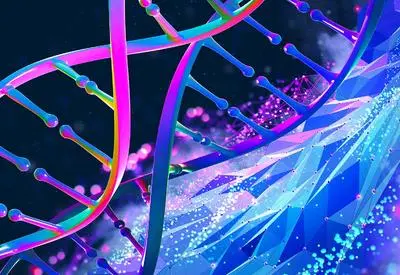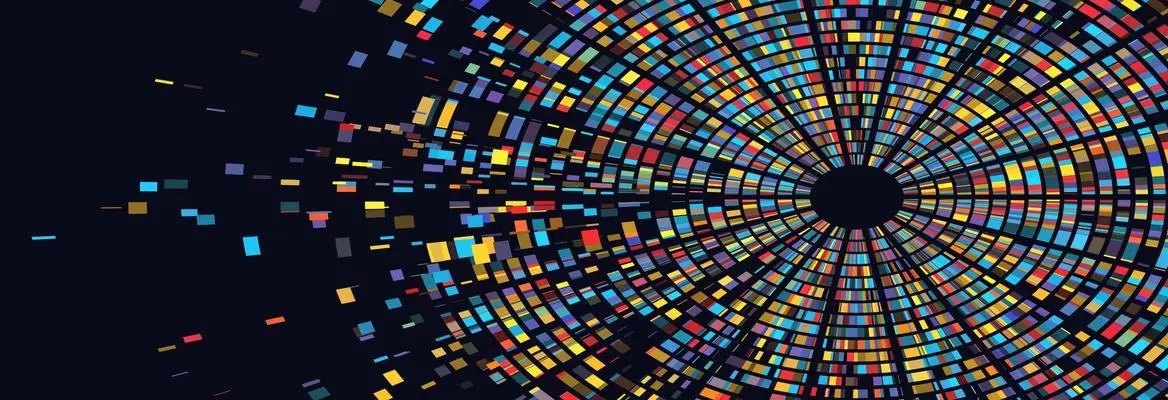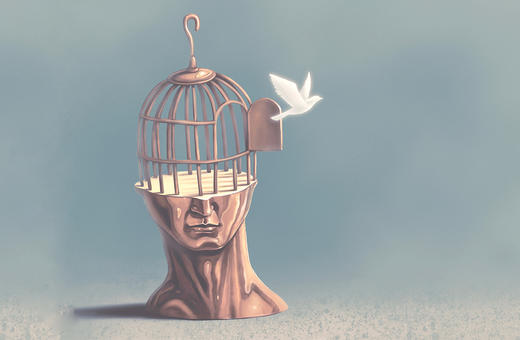“My genes made me do it” encapsulates how many geneticists, following the footsteps of Richard Dawkins, think of our genome’s relationship to us: complete control over our mind and body. That seemingly leaves no room for free will, relegating it to a mere illusion. At the HowTheLightGetsIn festival in London last month, distinguished biologist Denis Noble sought to dismantle this picture. Our bodies, argued Noble, exhibit agency, an ability to choose between alternatives, even at the cell level, dispelling the idea that we’re mere automata, programmed by our genome.
You do what you do because of who you are, and you are who you are because of your genes and your environment. That’s how a contemporary argument against the existence of free will usually goes. The first claim, about the way our genes determine our fate, has come out of an interpretation of Darwin’s theory of evolution often associated with Richard Dawkins. According to this picture humans are just vehicles for the propagation of genes, and it is them, not us, who are running the show. This seems to leave little room for human agency: for our judgements and actions to be genuinely shaped by reflection and deliberation. Free will is therefore a myth, and the remaining puzzle for geneticists like Jerry A. Coyne seems to be “why evolution bequeathed us such a powerful illusion.”
 SUGGESTED READING
The gene illusion
By Denis Noble
SUGGESTED READING
The gene illusion
By Denis Noble
Denis Noble doesn’t buy it. In a talk he gave at HowTheLightGetsIn festival in London last month, the distinguished Oxford physiologist, musician, and philosopher of biology, argued that a closer look at what our bodies are made of and an understanding of how they work reveals that free will is no illusion. We all know that water is essential to living organisms – it’s what astrophysicists look for on other planets when speculating about the existence of extra-terrestrial life. According to Noble, water and the controlled stochasticity that it allows of molecules that are suspended in it, is also what makes us free. That’s the key difference between living organisms and computers made of silicon: they are determinate machines, we are creatures of stochasticity, of chance. This still leaves open the question of why stochastic processes entail freedom, as well as whether our social environment still determines us in ways that undermine our agency. But for Denis Noble a rejection of the idea of genetic determinacy is genuinely liberating, allowing us “the only form of free will worth having”.
___
“There is no program of life or a blueprint for life in a genome, we’ve been looking for one for over 20 years.”
___
There is a deep chasm that separates Noble’s approach to biology from that of Neo-Darwinians like Richard Dawkins who have described the genome as “the book of life”, “creating us body and mind”. For Noble, the genome is the wrong place to look if we want to understand life, and what has led some biologists astray in thinking that our genes determine our behaviour. “There is no program of life or a blueprint for life in a genome, we’ve been looking for one for over 20 years.”
Choice, for Noble, is key to understanding intelligent life “the ability to distinguish, and choose, between different behavioural options”. And looking at our genome we find nothing that resembles a kind of conditional logic -- a set of “if X, then Y, else Z” type of instructions – a structure of switches that would allow organisms to make choices between different outcomes, argued Noble.





















Join the conversation